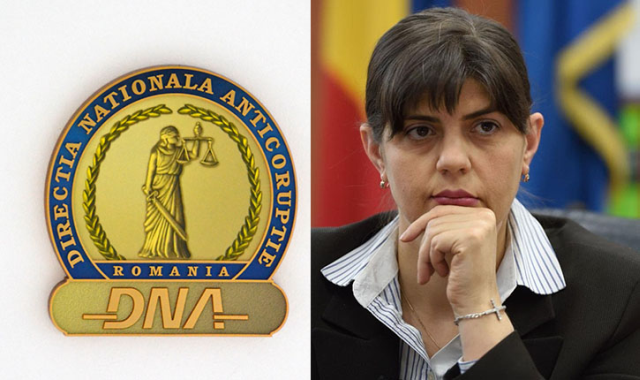Earthquake at the National Anti-corruption Directorate
The Constitutional Court has ruled that the president is to dismiss the chief prosecutor of the National Anti-corruption Directorate

Bogdan Matei, 31.05.2018, 13:02
Expected by some and described as mind-boggling by others, the Constitutional Courts ruling on Wednesday is categorical: president Klaus Iohannis must dismiss the head of the National Anti-corruption Directorate Laura Codruta Kovesi, as requested, since February, by the justice minister Tudorel Toader. The constitutional judges have established that the president generated a conflict with the government when he refused to dismiss Kovesi. Without hiding his satisfaction, Toader says the ruling issued by the Constitutional Court is based on the constitutional principle according to which prosecutors carry out their activity under the authority of the justice minister. He also says that, unlike the minister, the president has no legal ability to assess the professional or managerial competence of high-ranking prosecutors. President Iohannis has only stated he is waiting for the Courts explanation before acting.
The ruling coalition formed by the Social Democratic Party and the Alliance of Liberals and Democrats, which has constantly backed the justice ministers efforts to have the chief anti-corruption prosecutor dismissed, has hailed the Courts ruling, describing it as natural. The opposition, however, has denounced the confiscation of the presidents powers and the transformation of the Constitutional Court, chaired by the former Social Democratic politician Valer Dorneanu, into an advocate for the private interests of those in government. For the media, a chapter of the anti-corruption fight is about to come to an end.
The spearhead of the fight against corruption for some or the head of an abusive police system for others, Kovesi has often been described as the most powerful woman in Romania. She admitted, however, last week, when she attended a debate at the United Nations headquarters in New York, that the biggest challenge for Romania is maintaining the independence of judges and prosecutors. “There have been repeated attempts to limit the efficiency of our investigations by initiatives of amending the anti-corruption legislation, by restricting the tools used by the prosecutors or by denying waiving the immunity of the politicians involved in corruption cases. The entire justice system has faced attacks in the form of fake news and public statements which could weaken the public trust in the judiciary”, is how she summed up the past year and a half, when the government has been accused of trying to block the fight against corruption and place magistrates at its orders.
Minister Tudorel Toader responded from Bucharest that the acquittals, the legal conflicts of a constitutional nature, the cases affected by the statute of limitations and the abuses of prosecutors are not fake news. Beyond the war of words, what remain are the statistics. In the last five years alone, the National Anti-corruption Directorate has indicted 14 ministers and former ministers and 53 Members of Parliament. 27 of them have already received final sentences. During this period, the Directorate has also taken precautionary measures for 2.3 billion dollars worth of assets. Commentators say the work of the National Anti-corruption Directorate must continue because in a mature democracy institutions function and do their duty irrespective of who is in charge. (translated by Cristina Mateescu)






























